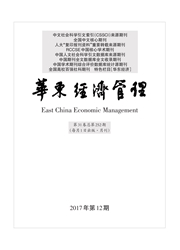

 中文摘要:
中文摘要:
为了实现系统模块的合理划分和科学评价,采用设计结构矩阵(design structure matrix,DSM)的理论和技术提出了城市基础设施项目集成控制系统模块化评价方法,包括系统功能依赖强度、数量的确定以及传递成本和聚类成本的计算等.针对该类系统的更新提出将遗传算法应用到DSM聚类算法中以寻找最优更新方案.以长春基础设施项目群集成控制系统作为典型案例,比较了更新前后两阶段系统版本的模块化程度,并提出了新一代系统的更新方案,该案例验证了DSM方法在系统模块划分、评价和方案优选方面的可行性和有效性,为同类大型集成控制系统的开发和维护提供了理论和实践参考.
 英文摘要:
英文摘要:
Aimed at implementing the rational modular partition and scientific evaluation, design structure matrix (DSM) theories and technologies were adopted to establish the evaluation and optimization methodology for city infrastructure multi-projects integration control system, encompassing the algorithm of independent intensity and number, propagation cost, clustered cost etc. In terms of the system update, the genetic algorithm was combined with the clustering algorithm of DSM so as to achieve the most optimal update scheme. Changchun infrastructure multi-projects integration control system was selected as the typical case, two versions of which before and after updating respectively were compared on degree of modularity and an update scheme for next generation had been put forwarded. The results verify the feasibility and effectiveness of the proposed methodology on modular partition, schemes evaluation and optimal selection, which provide theoretical and practical references for the development and maintenance of large integrated control system of the same kind.
 同期刊论文项目
同期刊论文项目
 同项目期刊论文
同项目期刊论文
 期刊信息
期刊信息
